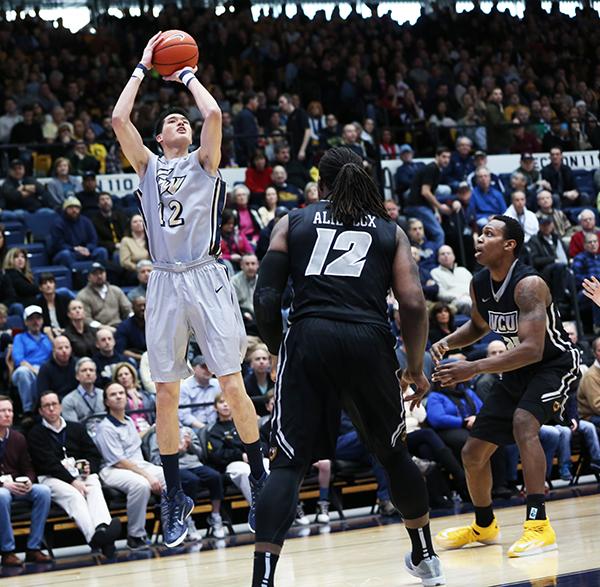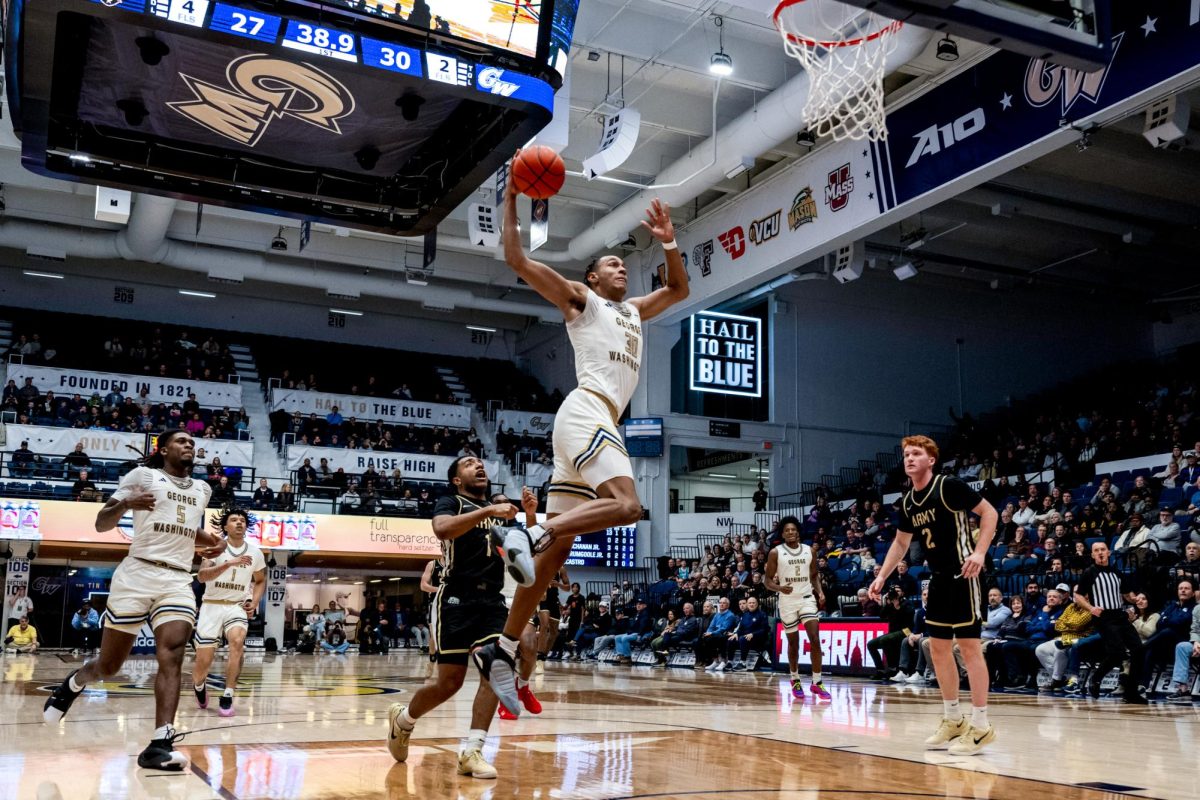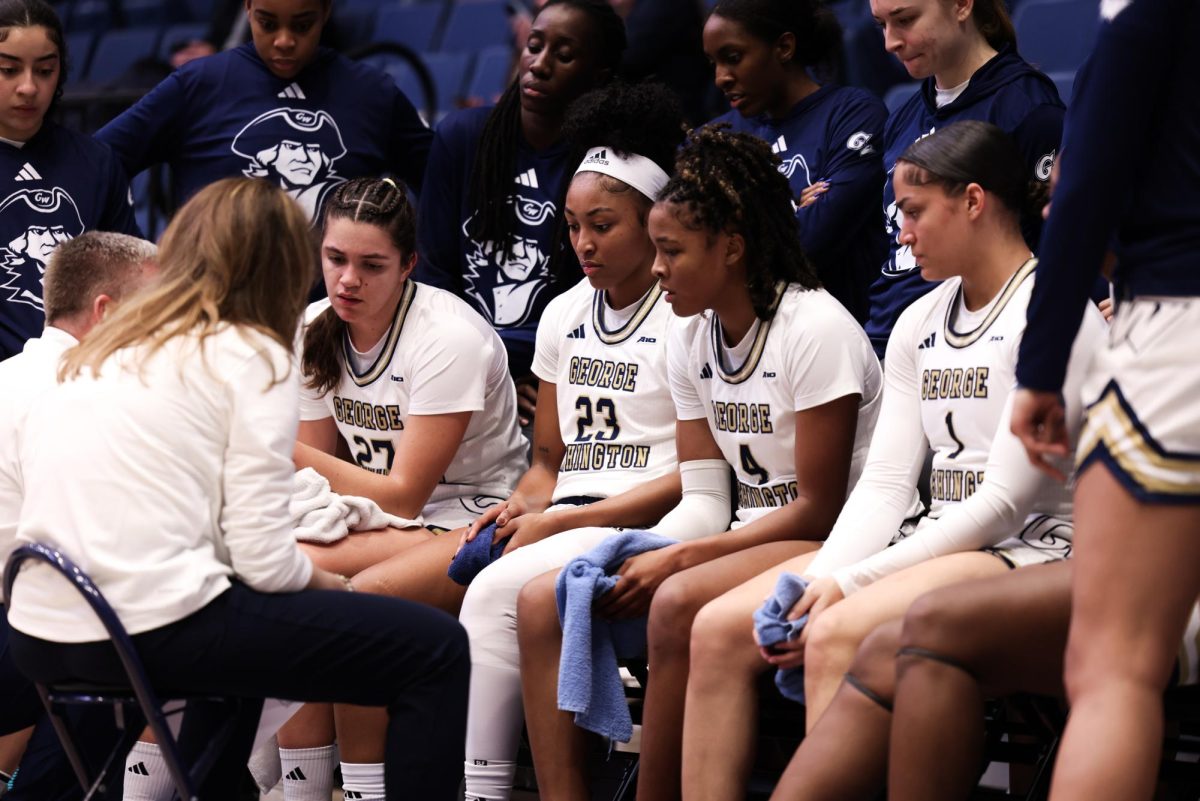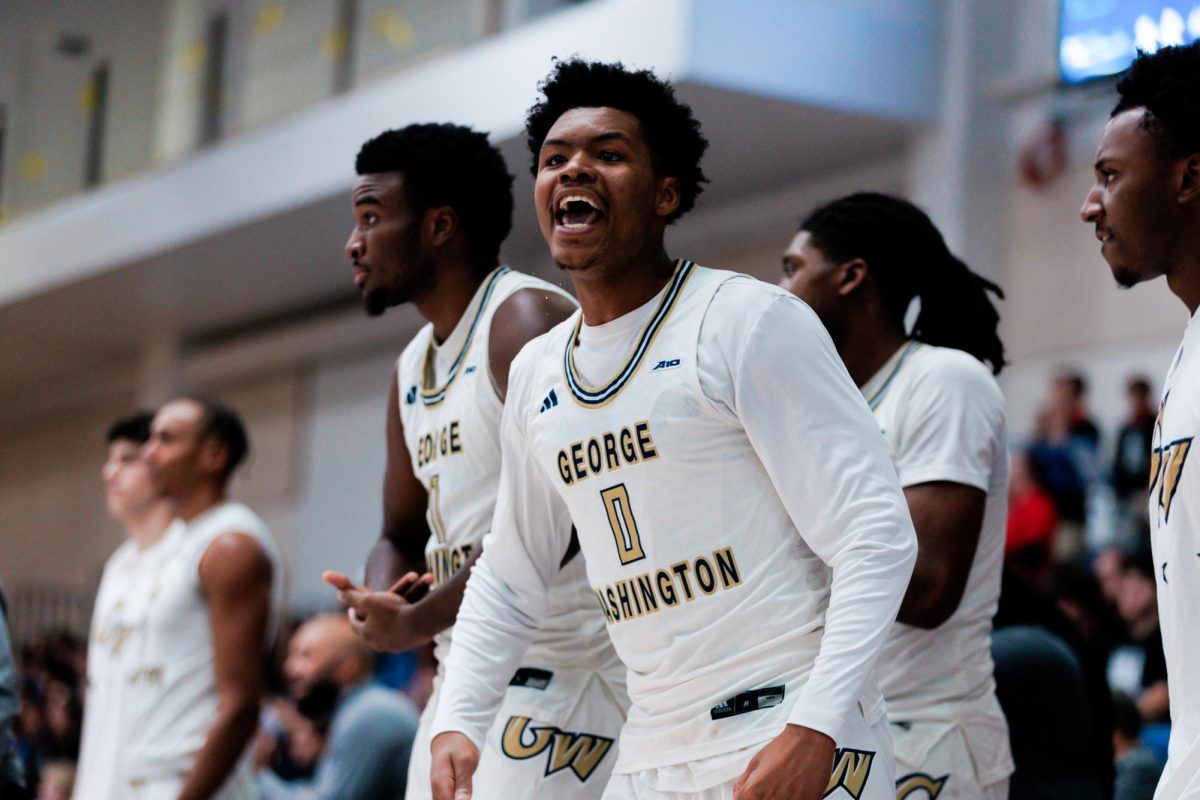With 25 games in the books last season, the 2013-2014 Colonials had already posted 1,865 points.
But this year, at the same point in time, the team has only recorded 1,686 and is on pace to score 119 fewer points than its last regular season total.
While this may be a disheartening statistic for the GW faithful, it’s not an uncommon one: Smarter defense, less adept shooters and officiating changes have all contributed to a growing trend of low scoring in NCAA Division I men’s basketball.
Evidenced by an about 3 percent drop in scoring in major conference games, 2015 is shaping up to be the slowest-paced year in the shot clock era.
Head coach Mike Lonergan said teams in the Atlantic 10 simply have more knowledge about their opponents today, leading to improved defensive game plans.
“I think it really is just because coaches have done a good job scouting because of modern technology … I can go on my computer and in 30 minutes I can look at every shot Treveon Graham’s taken this year,” Lonergan said. “In the old days, I’d sit on my hands and knees with two VCRs and put tapes together for our players. Now it’s just so much easier to do.”
Eighth in the league in scoring but sixty-fifth in the nation in points allowed and conceding an average of 61.6 points per game, the Colonials (17-8, 7-5 A-10) have tried to have the same defensive mindset as powerhouses Virginia and Kentucky, two teams that slow down the game and hold opponents to an average of fewer than 53.0 points per game.
But strong defense through scouting is only part of the explanation. On the offensive end, Lonergan thinks poor shooting and lack of mental toughness are also factors in the league-wide trend.
“Kids don’t shoot as well as a whole as they shot years ago,” Lonergan said. “Even little kids who watch games … most kids don’t work on shooting because you know, SportsCenter is all about dunks and stuff like that.”
A-10 newcomer Davidson (17-6, 8-4 A-10), however, which GW will host Wednesday night in the teams’ first meeting this season, seems to have a simple solution for the scoring problem.
“Recruit shooters,” Davidson head coach Bob McKillop said.
McKillop cited “better athletes, better defensive players, more defensive schemes,” and coaches playing “closer to the vest” as possible reasons for the lapse in made baskets, but said he still had no true explanation for it.
It may be harder for McKillop to see, since the Wildcats are dominating the conference in scoring, averaging 81.3 points per game to GW’s 67.4. The fifth-best scoring offense in the nation has a knack for three-point shooting, but is an exception to the rule.
Analysts such as Seth Davis and Jay Bilas, whose livelihoods depend on the sport, have argued that the scoring decline is hurting the product of college hoops as a whole. Compared to college football, basketball offers a fast-paced game with plenty of offense, but less scoring may equal less excitement.
One possible solution is a shorter shot clock to boost scoring by making the game quicker. The concern, according to Washington Post reporter Scott Allen, who covers D.C. sports, is that even highly successful teams like No. 2 Virginia play basketball that isn’t fun for spectators.
“Some people think Virginia, what they’re doing, the pack-line defense is beautiful and credit to them for all the success, but it can be a rather boring game to watch,” Allen said. “I think some rule changes, experimenting with a shorter shot clock, is a long time coming and it can only increase the interest in the game.”
While a recent ESPN poll found that nearly 70 percent of college basketball coaches would favor shortening the current 35-second shot clock to 30 seconds or fewer, Lonergan is not one of them.
With a shorter shot clock, Lonergan said he fears that coaches will micromanage defenses even more than they already do. Something like a three-quarter press could kill a percentage of the already reduced clock, he said, prompting players to take even worse shots under pressure.
Even with the drop in scoring and some shot clock tinkering in the works, as the NCAA has already announced plans to experiment with a 30-second shot clock in this year’s National Invitation Tournament, Lonergan said he isn’t concerned about the sport’s popularity.
“I think [college basketball] is the best sport … but obviously I’m biased,” Lonergan said. “The NCAA Tournament, March Madness, pays for everything in college athletics. I mean it’s a billion-dollar industry and it’s the most popular sporting event really that there is in this country.”







